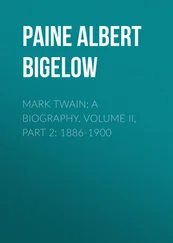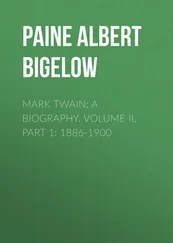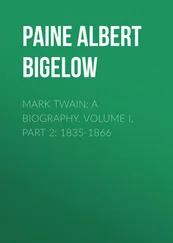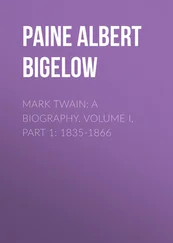Марк Твен - Mark Twain's Letters – Volume 1 (1853-1866)
Здесь есть возможность читать онлайн «Марк Твен - Mark Twain's Letters – Volume 1 (1853-1866)» — ознакомительный отрывок электронной книги совершенно бесплатно, а после прочтения отрывка купить полную версию. В некоторых случаях можно слушать аудио, скачать через торрент в формате fb2 и присутствует краткое содержание. Издательство: Иностранный паблик, Жанр: foreign_antique, foreign_prose, на английском языке. Описание произведения, (предисловие) а так же отзывы посетителей доступны на портале библиотеки ЛибКат.
- Название:Mark Twain's Letters – Volume 1 (1853-1866)
- Автор:
- Издательство:Иностранный паблик
- Жанр:
- Год:неизвестен
- ISBN:нет данных
- Рейтинг книги:5 / 5. Голосов: 1
-
Избранное:Добавить в избранное
- Отзывы:
-
Ваша оценка:
- 100
- 1
- 2
- 3
- 4
- 5
Mark Twain's Letters – Volume 1 (1853-1866): краткое содержание, описание и аннотация
Предлагаем к чтению аннотацию, описание, краткое содержание или предисловие (зависит от того, что написал сам автор книги «Mark Twain's Letters – Volume 1 (1853-1866)»). Если вы не нашли необходимую информацию о книге — напишите в комментариях, мы постараемся отыскать её.
Mark Twain's Letters – Volume 1 (1853-1866) — читать онлайн ознакомительный отрывок
Ниже представлен текст книги, разбитый по страницам. Система сохранения места последней прочитанной страницы, позволяет с удобством читать онлайн бесплатно книгу «Mark Twain's Letters – Volume 1 (1853-1866)», без необходимости каждый раз заново искать на чём Вы остановились. Поставьте закладку, и сможете в любой момент перейти на страницу, на которой закончили чтение.
Интервал:
Закладка:
Undecided as to his plans, he was one day advised by a friend to deliver a lecture. He was already known as an entertaining talker, and his adviser judged his possibilities well. In Roughing It we find the story of that first lecture and its success. He followed it with other lectures up and down the Coast. He had added one more profession to his intellectual stock in trade.
Mark Twain, now provided with money, decided to pay a visit to his people. He set out for the East in December, 1866, via Panama, arriving in New York in January. A few days later he was with his mother, then living with his sister, in St. Louis. A little later he lectured in Keokuk, and in Hannibal, his old home.
It was about this time that the first great Mediterranean steamship excursion began to be exploited. No such ocean picnic had ever been planned before, and it created a good deal of interest East and West. Mark Twain heard of it and wanted to go. He wrote to friends on the ‘Alta California,’ of San Francisco, and the publishers of that paper had sufficient faith to advance the money for his passage, on the understanding that he was to contribute frequent letters, at twenty dollars apiece. It was a liberal offer, as rates went in those days, and a godsend in the fullest sense of the word to Mark Twain.
Clemens now hurried to New York in order to be there in good season for the sailing date, which was in June. In New York he met Frank Fuller, whom he had known as territorial Governor of Utah, an energetic and enthusiastic admirer of the Western humorist. Fuller immediately proposed that Clemens give a lecture in order to establish his reputation on the Atlantic coast. Clemens demurred, but Fuller insisted, and engaged Cooper Union for the occasion. Not many tickets were sold. Fuller, however, always ready for an emergency, sent out a flood of complimentaries to the school-teachers of New York and adjacent territory, and the house was crammed. It turned out to be a notable event. Mark Twain was at his best that night; the audience laughed until, as some of them declared when the lecture was over, they were too weak to leave their seats. His success as a lecturer was assured.
The Quaker City was the steamer selected for the great oriental tour. It sailed as advertised, June 8, 1867, and was absent five months, during which Mark Twain contributed regularly to the ‘Alta-California’, and wrote several letters for the New York Tribune. They were read and copied everywhere. They preached a new gospel in travel literature – a gospel of seeing with an overflowing honesty; a gospel of sincerity in according praise to whatever he considered genuine, and ridicule to the things believed to be shams. It was a gospel that Mark Twain continued to preach during his whole career. It became, in fact, his chief literary message to the world, a world ready for that message.
He returned to find himself famous. Publishers were ready with plans for collecting the letters in book form. The American Publishing Company, of Hartford, proposed a volume, elaborately illustrated, to be sold by subscription. He agreed with them as to terms, and went to Washington’ to prepare copy. But he could not work quietly there, and presently was back in San Francisco, putting his book together, lecturing occasionally, always to crowded houses. He returned in August, 1868, with the manuscript of the Innocents Abroad, and that winter, while his book was being manufactured, lectured throughout the East and Middle West, making his headquarters in Hartford, and in Elmira, New York.
He had an especial reason for going to Elmira. On the Quaker City he had met a young man by the name of Charles Langdon, and one day, in the Bay of Smyrna, had seen a miniature of the boy’s sister, Olivia Langdon, then a girl of about twenty-two. He fell in love with that picture, and still more deeply in love with the original when he met her in New York on his return. The Langdon home was in Elmira, and it was for this reason that as time passed he frequently sojourned there. When the proofs of the Innocents Abroad were sent him he took them along, and he and sweet “Livy” Langdon read them together. What he lacked in those days in literary delicacy she detected, and together they pruned it away. She became his editor that winter – a position which she held until her death.
The book was published in July, 1869, and its success was immediate and abundant. On his wedding-day, February 2, 1870, Clemens received a check from his publishers for more than four thousand dollars, royalty accumulated during the three months preceding. The sales soon amounted to more than fifty thousand copies, and had increased to very nearly one hundred thousand at the end of the first three years. It was a book of travel, its lowest price three dollars and fifty cents. Even with our increased reading population no such sale is found for a book of that description to-day. And the Innocents Abroad holds its place – still outsells every other book in its particular field. [This in 1917. D.W.]
Mark Twain now decided to settle down. He had bought an interest in the Express, of Buffalo, New York, and took up his residence in that city in a house presented to the young couple by Mr. Langdon. It did not prove a fortunate beginning. Sickness, death, and trouble of many kinds put a blight on the happiness of their first married year and gave, them a distaste for the home in which they had made such a promising start. A baby boy, Langdon Clemens, came along in November, but he was never a strong child. By the end of the following year the Clemenses had arranged for a residence in Hartford, temporary at first, later made permanent. It was in Hartford that little Langdon died, in 1872.
Clemens, meanwhile, had sold out his interest in the Express, severed his connection with the Galaxy, a magazine for which he was doing a department each month, and had written a second book for the American Publishing Company, Roughing It, published in 1872. In August of the same year he made a trip to London, to get material for a book on England, but was too much sought after, too continuously feted, to do any work. He went alone, but in November returned with the purpose of taking Mrs. Clemens and the new baby, Susy, to England the following spring. They sailed in April, 1873, and spent a good portion of the year in England and Scotland. They returned to America in November, and Clemens hurried back to London alone to deliver a notable series of lectures under the management of George Dolby, formerly managing agent for Charles Dickens. For two months Mark Twain lectured steadily to London audiences – the big Hanover Square rooms always filled. He returned to his family in January, 1874.
Meantime, a home was being built for them in Hartford, and in the autumn of 1874 they took up residence in ita happy residence, continued through seventeen years – well-nigh perfect years. Their summers they spent in Elmira, on Quarry Farm – a beautiful hilltop, the home of Mrs. Clemens’s sister. It was in Elmira that much of Mark Twain’s literary work was done. He had a special study there, some distance from the house, where he loved to work out his fancies and put them into visible form.
It was not so easy to work at Hartford; there was too much going on. The Clemens home was a sort of general headquarters for literary folk, near and far, and for distinguished foreign visitors of every sort. Howells and Aldrich used it as their half-way station between Boston and New York, and every foreign notable who visited America made a pilgrimage to Hartford to see Mark Twain. Some even went as far as Elmira, among them Rudyard Kipling, who recorded his visit in a chapter of his American Notes. Kipling declared he had come all the way from India to see Mark Twain.
Hartford had its own literary group. Mrs. Harriet Beecher Stowe lived near the Clemens home; also Charles Dudley Warner. The Clemens and Warner families were constantly associated, and The Gilded Age, published in 1873, resulted from the friendship of Warner and Mark Twain. The character of Colonel Sellers in that book has become immortal, and it is a character that only Mark Twain could create, for, though drawn from his mother’s cousin, James Lampton, it embodies – and in no very exaggerated degree – characteristics that were his own. The tendency to make millions was always imminent; temptation was always hard to resist. Money-making schemes are continually being placed before men of means and prominence, and Mark Twain, to the day of his death, found such schemes fatally attractive.
Читать дальшеИнтервал:
Закладка:
Похожие книги на «Mark Twain's Letters – Volume 1 (1853-1866)»
Представляем Вашему вниманию похожие книги на «Mark Twain's Letters – Volume 1 (1853-1866)» списком для выбора. Мы отобрали схожую по названию и смыслу литературу в надежде предоставить читателям больше вариантов отыскать новые, интересные, ещё непрочитанные произведения.
Обсуждение, отзывы о книге «Mark Twain's Letters – Volume 1 (1853-1866)» и просто собственные мнения читателей. Оставьте ваши комментарии, напишите, что Вы думаете о произведении, его смысле или главных героях. Укажите что конкретно понравилось, а что нет, и почему Вы так считаете.











